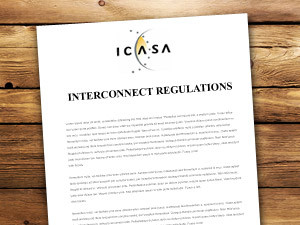
The Internet Service Providers' Association (ISPA) has taken MTN to task for "unilaterally" increasing its international termination rates (ITR) for inbound calls late last year - a move that was stonewalled by SA's telecoms regulator last month.
ISPA says the move by MTN - followed by a defence that it would not prejudice South African consumers - amounts to the operator being disingenuous.
In November, MTN decided to put a 25 US cents interconnect charge on traffic terminating on its network from international destinations. At the time, the operator informed clients in a notice that voice calls coming into the country to its network and then onto other local networks would attract the same charge.
ISPA and other licensees subsequently raised the issue with the Independent Communications Authority of SA (ICASA), which then ordered MTN to "immediately" stop collecting the call fees, a practice it said contravened the Electronic Communications Act.
ISPA points out a 25 US cents per minute termination fee on international inbound calls translates to an increase of around 1 480% on the fee for local inbound calls. The body, which serves the interests of ISPs and voice providers, says it is "misleading for MTN to increase its rates in order to protect its revenue, while claiming this will not prejudice local consumers".
Knock-on effect
Yesterday, MTN SA's corporate department executive Graham de Vries told ITWeb that "any perception that this inter-operator cost affects the SA consumer is inaccurate".
"It should be understood a higher ITR charged to our international interconnect partners is an international inter-operator cost and does not impact or affect the retail rates charged to our MTN subscriber phoning international destinations."
However, ISPA regulatory advisor Dominic Cull says the implementation of inflated call termination rates for international calls prejudices South African consumers by nature of the fact that "their friends, family members and business associates overseas bear the cost of originating calls from overseas towards them".
Cull says the effect will be particularly felt in the Southern African Development Community region where a large number of migrant workers are employed in SA while supporting dependents in the region.
"There is a cause-and-effect relationship whereby if you increase the cost for a foreign calling party to call to a South African, you will create a situation where more South Africans have to call the foreign party back, thereby passing the cost to the South African public."
Anti-competitive
As for De Vries' argument that MTN's international termination rate of 25 US cents was necessary to redress imbalances with the rates charged by international operators, ISPA points to revenue constraints imposed through the various sets of call termination regulations since 2010 as "the likelier reason" for MTN's rate inflation.
"These regulations are intended as pro-competitive remedies allowing new entrants to compete.
"Reintroducing massively inflated call termination rates ? even in respect of just internationally-originated calls ? will have an anti-competitive effect on new entrants trying to provide voice services to international clients," says Cull.
MTN is studying the decision taken by the regulator and says it will "be engaging with ICASA on this matter in due course".
Share